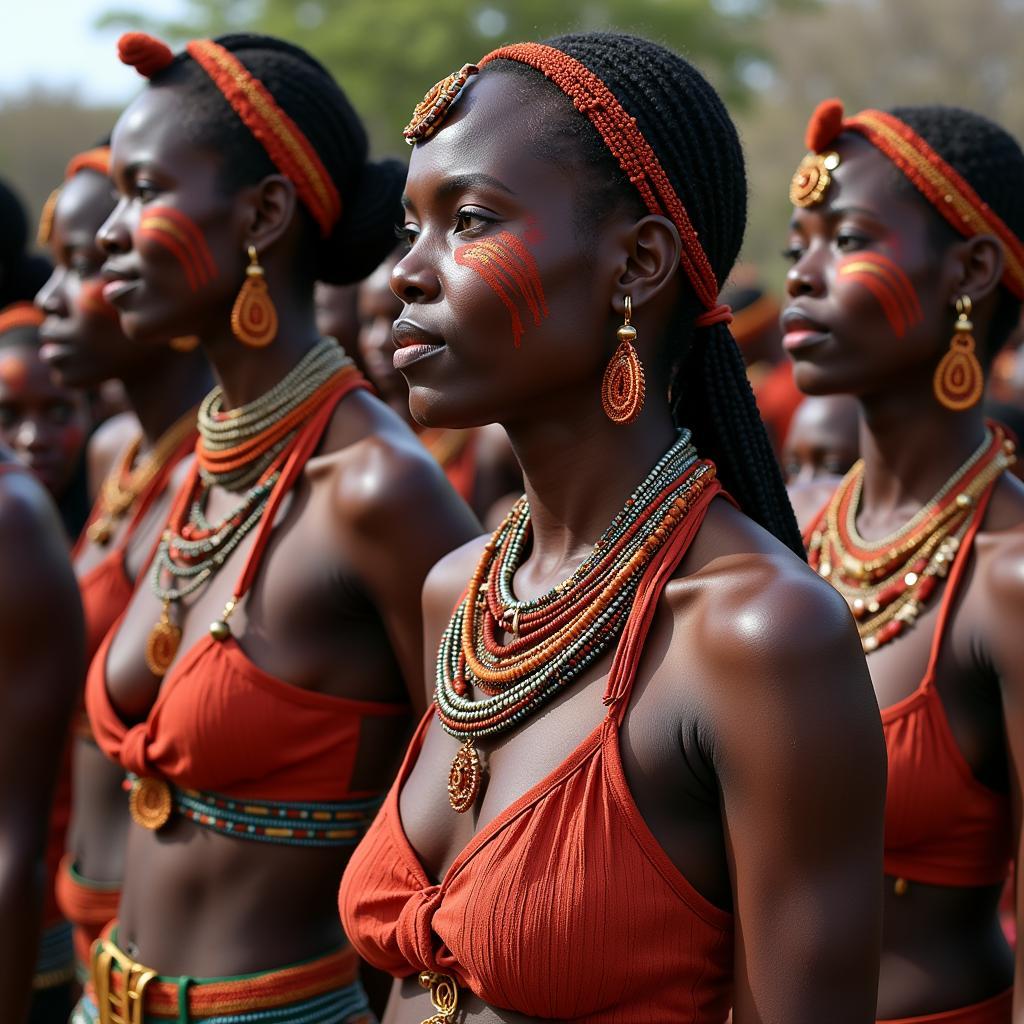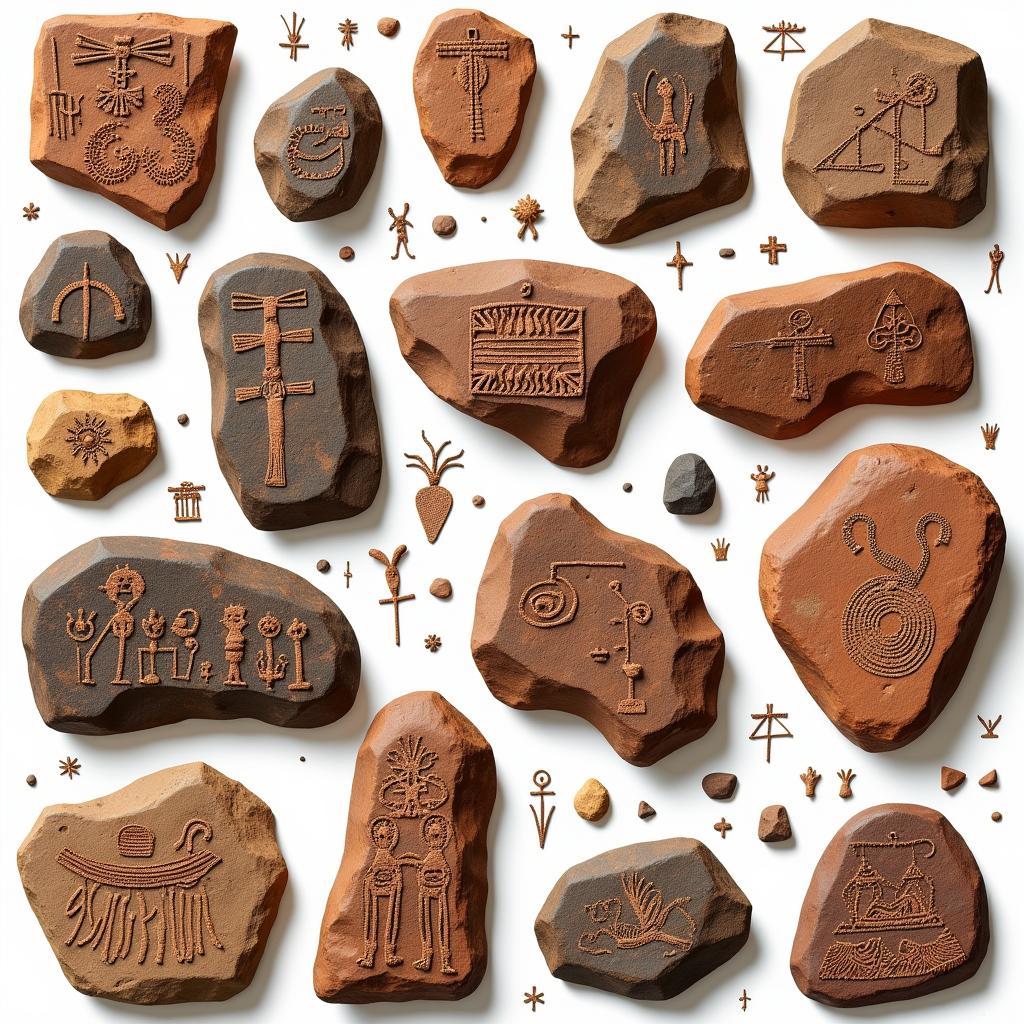The Ultimate Guide to African Hair Treatment
African Hair Treatment is a rich and diverse topic, encompassing traditional practices passed down through generations and modern innovations tailored to its unique texture and needs. Understanding the nuances of African hair care is crucial for maintaining its health, vibrancy, and cultural significance. From moisturizing and detangling to styling and protecting, effective African hair treatment is essential for healthy growth and overall well-being. After reading this article, you will understand how to care for your African hair using both traditional and modern methods.
Understanding the Unique Needs of African Hair
African hair, often characterized by its tight curls and coils, requires specialized care due to its unique structure. The coiled shape makes it prone to dryness and breakage, requiring gentle handling and regular moisturizing. This unique structure also affects how sebum, the natural oil produced by the scalp, travels down the hair shaft. In straighter hair types, sebum easily coats the entire strand, keeping it moisturized. However, in tightly coiled African hair, the sebum has a harder time reaching the ends, leading to dryness and brittleness. Choosing the right products and techniques is key to maintaining its strength, length, and overall health.
This intricate structure makes detangling a crucial part of African hair treatment. Improper detangling can lead to breakage and damage, hindering healthy growth. Techniques like finger detangling or using wide-toothed combs are gentler and more effective for minimizing breakage.
After discussing the unique needs, let’s explore some traditional African hair treatment practices. If you are looking to encourage hair growth, consider exploring resources on african hair growth.
Traditional African Hair Treatment Practices
For centuries, African communities have utilized natural ingredients and time-honored techniques for hair care. These traditional practices often involve the use of plant-based oils, butters, and herbs to nourish and protect the hair. These natural remedies not only promote healthy hair but also connect individuals to their cultural heritage.
One common practice is the use of shea butter, a rich emollient extracted from the nut of the African shea tree. Shea butter deeply moisturizes, softens, and protects hair from environmental damage. Another popular ingredient is coconut oil, known for its ability to penetrate the hair shaft and provide deep conditioning. These natural ingredients are often combined with herbs and other plant extracts to create customized treatments for specific hair concerns.
Beyond individual ingredients, traditional African hair treatment also emphasizes protective hairstyles. Braids, twists, and cornrows are not only aesthetically pleasing but also serve to protect the hair from breakage and retain moisture. These styles minimize manipulation and exposure to environmental elements, promoting healthy hair growth. For more tips and advice, check out some helpful african hair treatment tips.
Modern African Hair Treatment Options
While traditional practices remain relevant, modern advancements have introduced new products and techniques for African hair treatment. These innovations cater to the specific needs of African hair, offering solutions for various concerns from dryness and breakage to styling and growth. Many of these modern methods combine scientific research with traditional ingredients, offering a comprehensive approach to hair care.
One key development is the formulation of specialized shampoos, conditioners, and styling products designed for African hair textures. These products often contain ingredients that address dryness, promote moisture retention, and enhance curl definition. Another significant advancement is the development of techniques like hot oil treatments and deep conditioning masks, which provide intense hydration and repair.
Modern African hair treatment also recognizes the importance of protective styling. Techniques like weaves, wigs, and extensions offer versatile styling options while safeguarding natural hair from damage. These methods allow individuals to experiment with different looks without compromising the health of their hair. If you are experiencing hair loss, you may find valuable information on african american hair loss treatment.
What are some common ingredients used in African hair treatment?
Common ingredients include shea butter, coconut oil, jojoba oil, argan oil, and aloe vera. These natural ingredients are known for their moisturizing and nourishing properties.
How often should I wash my African hair?
Washing frequency depends on hair type and personal preference, but generally, washing every 1-2 weeks helps maintain moisture balance.
Dr. Zuri Elukwu, a renowned trichologist specializing in African hair care, emphasizes the importance of consistent moisturizing: “African hair thrives on moisture. Regular deep conditioning treatments are essential for maintaining its health and preventing breakage.”
Choosing the Right African Hair Treatment for You
Selecting the right hair treatment regimen depends on individual hair type, porosity, and specific needs. Understanding your hair’s unique characteristics is crucial for choosing products and techniques that deliver optimal results. For those seeking regrowth solutions, exploring information on african hair regrowth treatment might be beneficial. Experimenting with different products and methods may be necessary to find the perfect combination that works best for you. Also, if you’re interested in treatments specifically for African American hair growth, consider reading more about african american hair growth treatments.
Conclusion
African hair treatment is a journey of self-discovery and cultural connection. By embracing both traditional wisdom and modern innovations, individuals can achieve healthy, vibrant hair that reflects their unique identity. Whether it’s utilizing natural ingredients passed down through generations or adopting scientifically formulated products, consistent care and attention are crucial for maintaining the health and beauty of African hair. Remember to prioritize gentle handling, regular moisturizing, and protective styling to promote optimal growth and overall hair well-being. Finding the right African hair treatment is a process of understanding your hair’s individual needs and exploring the diverse options available.
FAQ
- What is the best oil for African hair? Several oils benefit African hair, including coconut oil, shea butter, and jojoba oil. The best choice depends on individual hair needs.
- How can I prevent breakage in African hair? Gentle handling, regular moisturizing, and protective styling are key to preventing breakage.
- Is it necessary to use specialized products for African hair? Using products formulated for African hair can significantly improve its health and manageability.
- How often should I deep condition my African hair? Deep conditioning every 1-2 weeks, or as needed, helps maintain moisture and prevent dryness.
- Can I use heat styling tools on African hair? Heat styling can be used sparingly, but it’s crucial to use heat protectant products and avoid excessive heat.
- What are some traditional African hair styling techniques? Traditional styles include braids, twists, cornrows, and various updos that protect hair and promote growth.
- How can I find a qualified stylist specializing in African hair? Seek recommendations from friends or family, or search online for stylists with experience in African hair care.
Need More Help?
For further assistance with your African hair care needs, please contact us:
Phone: +255768904061
Email: [email protected]
Address: Mbarali DC Mawindi, Kangaga, Tanzania
Our customer care team is available 24/7 to answer your questions and provide personalized advice. We also have a wealth of resources available on our website, including articles on related topics such as hair porosity, scalp care, and product reviews. Don’t hesitate to reach out – we’re here to help you achieve healthy, beautiful hair.


